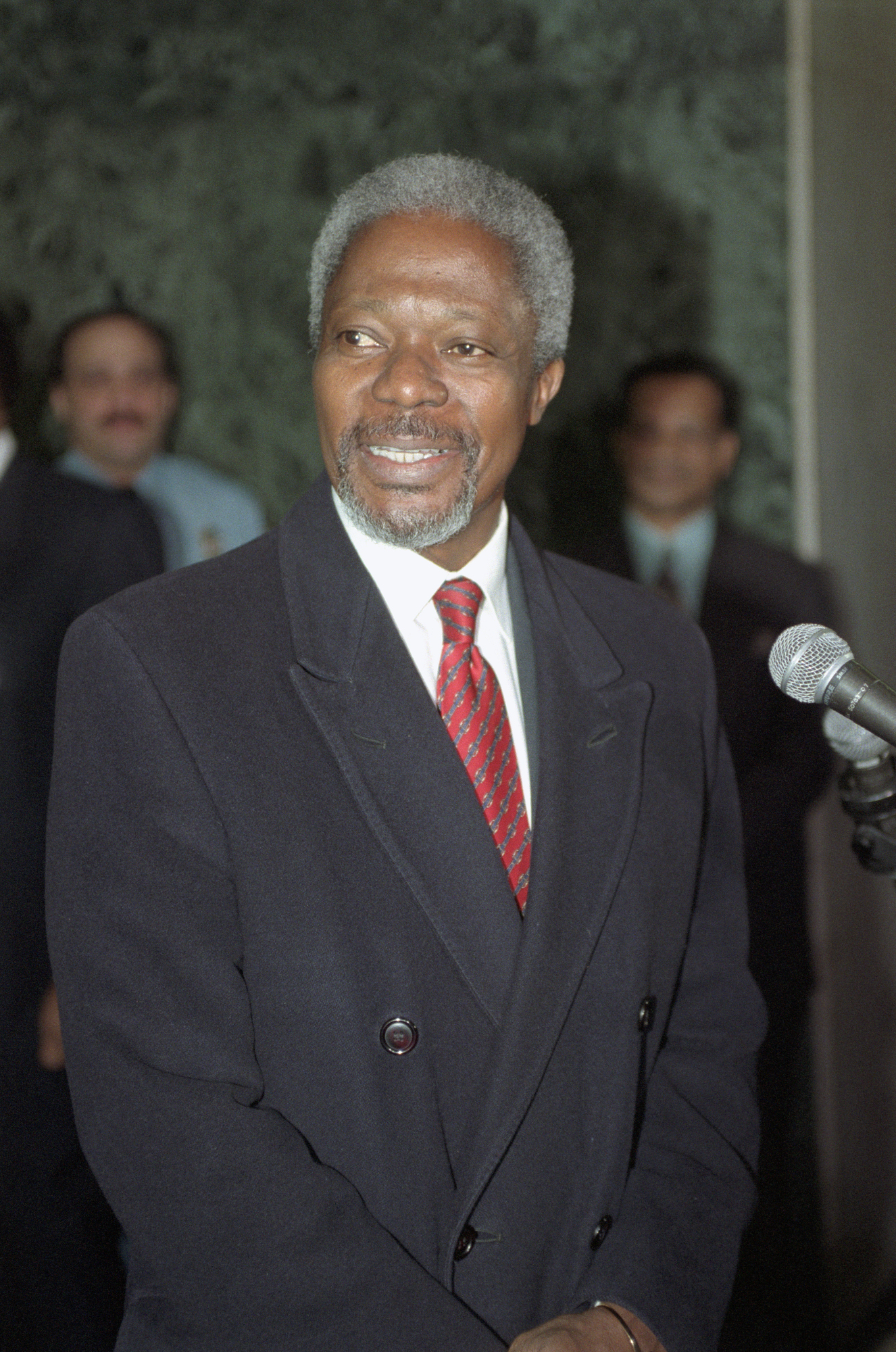The UN and a Turning Point in Annan's Career
In 1962, Annan began his first job within the UN system at the World Health Organization. He may have been attracted by the humanitarian nature of the organization or he may have just needed a job. Nevertheless, once in the UN system he found a natural affinity to the type of humanitarian work it stands for. During most of his years within the UN, Annan was a bureaucrat, learning one type of management system and another. This enabled him later to understand the UN inside and out, but he was not identified as a political officer until much later. A profound event that would shape Annan's career as well as his sense of efficacy came when Secretary-General Pérez de Cuéllar sent Annan, at that time within the UN department of personnel, to Iraq in late September 1990 to try to free the 900 UN hostages that had been taken by Saddam Hussein before the outbreak of the first Gulf War in 1991. It was his first political assignment and his skills at diplomatic negotiations successfully brought about the release of all the UN hostages. Annan had remained optimistic about achieving their release and did not leave Iraq until every last person had made it to Jordan for the airlift out, even though he had to struggle at the last minute to get a few who had been left behind the proper papers and get them transport to Amman.19 To further understand the way Annan's conscience worked and the effort he pressed upon himself, it is important to fill out this story. Annan, in working to release the UN hostages, discovered that some 500 thousand Asians from India, Sri Lanka, Bangladesh and many other countries could not get out of Iraq or Kuwait and risked being slaughtered in the impending war. They had all suddenly lost their jobs and because most banks had closed down they could not retrieve any money they might have had to pay their way home. Annan explained, "These people were beggared overnight."20
Annan attended several meetings of the Western Ambassadors in Baghdad who discussed ways of pressuring the Iraqis to release the Western hostages. Unfortunately, the Asian and African ambassadors had not organized in the same 7 way. So he made the rounds of the Indian, Pakistani, Bangladeshi, and other ambassadors to collect estimates of the numbers of their nationals stranded in Iraq and Kuwait. "I got the figures from them," he said. "I think I was the first to give it to the Iraqi Foreign Ministry." [Tariq] Aziz soon agreed to allow the UN to organize airlifts to take the workers from Jordan to their homes.21
This achievement laid the groundwork for UN Secretary-General Pérez de Cuéllar to recommend Kofi Annan as Assistant Secretary-General for Special Political Affairs under Marrack Goulding. This achievement was not only a turning event in Annan's career but a profound learning experience. He was able to draw on his family life that welcomed a transitional mix of Western culture and that of the developing world. He had learned early on to be able to cross that divide with ease. He was also beginning to act upon the leadership role his father had provided. Thus, we see that Kofi's personality, his response to a humanitarian crisis, and his sense of efficacy, were not only shaped by early childhood and cultural experiences but also by major events in his adult life. Others would follow.
Notes:
19. Ibid, pages 49-50.
20. Ibid.
21. Ibid.
